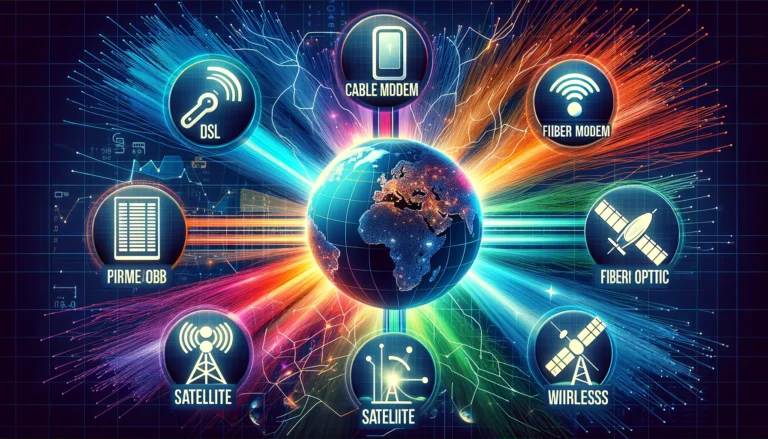The Rise of Broadband Technology: A Revolution in Connectivity
In an era of ever-increasing interconnectivity, the rise of broadband technology marks a pivotal moment in our digital landscape. The term “broadband” epitomizes high-speed internet access, enabling the swift transmission of vast data volumes at unprecedented speeds. With advancements in technologies such as fiber optic cables, 5G networks, and gigabit broadband, the influence on our daily lives, businesses, and the global economy is truly revolutionary.

Closing the Digital Divide
The COVID-19 pandemic underscored the importance of broadband technology like never before. As remote work, e-commerce, and the Internet of Things (IoT) integrated into our daily routines, the need for reliable connectivity became glaringly apparent. Broadband emerged as the linchpin, ensuring that individuals and businesses could flourish in the digital age.
Even before the pandemic, the digital divide was a pressing concern, particularly in underserved rural areas lacking adequate internet access. Broadband has emerged as a beacon of hope in addressing this challenge. The deployment of fiber broadband in underserved regions has redefined the possibilities of connectivity. It empowers individuals in remote corners of the world to connect with friends, access vast troves of information, and even participate in the global economy.
Economic Growth and Real-Time Connectivity
The economic impact of broadband technology cannot be overstated. Numerous studies have consistently demonstrated a direct correlation between high-speed internet and economic growth. Enhanced GDP often aligns with greater broadband penetration. It’s not merely about faster internet speeds; it’s about the ability to connect and disseminate knowledge, fueling innovation and collaboration.
The real-time capabilities enabled by broadband have revolutionized our interactions with technology. From augmented reality to artificial intelligence, these technologies hinge on the rapid transmission of extensive data—a feat made possible by broadband infrastructure.
Remote Work and Collaboration
The COVID-19 pandemic ushered in a paradigm shift in our work patterns, with remote work becoming the norm for many. Reliable internet connectivity has become an indispensable part of our daily work lives. Collaboration tools and video conferencing platforms have redefined how we conduct business and engage with colleagues and clients worldwide.
Broadband technology has not merely facilitated remote work but has also provided the means for businesses to reach a global audience. The ability to connect with customers, partners, and employees across borders has never been more attainable, thanks to high-speed internet.
The Digital Landscape
Social media platforms have revolutionized how we communicate and share information. In today’s interconnected world, high-speed internet has become an essential prerequisite for internet users. Whether connecting with friends on social media or accessing educational resources, the capacity to do so swiftly and reliably is taken for granted.
According to research conducted by the Pew Research Center, broadband technology has had a profound impact on how we access and disseminate information. It has not only revolutionized our interactions but has also opened up avenues for knowledge sharing and innovation.
The Future of Broadband
As technology continues to advance, the role of broadband in our lives will only expand. Fiber optic networks, 5G, and innovative solutions are extending the frontiers of broadband technology. Its ability to connect individuals and businesses, regardless of location, is cementing its status as an indispensable resource.
Estimates suggest that a 10% increase in broadband penetration can lead to a 1.3% increase in GDP, highlighting the economic potential broadband technology brings to regions and nations. The digital revolution is far from over, and broadband remains at the forefront, facilitating a brighter, more connected future.
In conclusion, the ascent of broadband technology has redefined the way we live, work, and interact. From narrowing the digital divide to fueling economic growth and real-time connectivity, broadband plays a central role in today’s interconnected world. As we progress further into the digital age, high-speed internet will continue to be a driving force across various facets of our daily lives, propelling innovation and connecting the world like never before.





